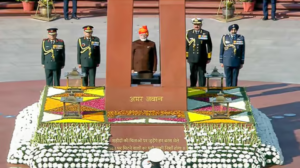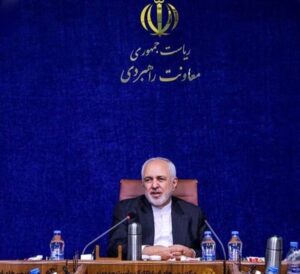One Nation, One Election Bill introduced

269 MPs voted in its favour and 198 against it in Lok Sabha
New Delhi : ‘One Nation, One Election’ was introduced in Parliament on Tuesday afternoon. After 269 MPs voted in its favour and 198 against it in Lok Sabha
Union Law Minister Arjun Meghwal introduced two Bills that would enable simultaneous elections to Lok Sabha and assemblies of states and Union Territories.
However, the Constitution (One Hundred and Twenty-Ninth Amendment) Bill 2024 and the Union Territories Laws (Amendment Bill) 2024, which were approved by the Cabinet last week, faced fierce pushback from Opposition parties.
Ahead of the introduction of the Bills, the Congress had made its opposition to the proposed amendment clear, saying it was unconstitutional. Party leader Jairam Ramesh said, “The Congress party firmly, totally, comprehensively rejects the One Nation, One Election (ONOE) bill. We will oppose its introduction. We will demand its reference to a Joint Parliamentary Committee. We believe it is unconstitutional. We believe it goes against the basic structure and it is meant to throttle democracy and accountability in this country.”
Ramesh said Congress President Mallikarjun Kharge had written to former President Ram Nath Kovind – who helmed the ONOE panel — on January 17 on why the Congress party was against the idea. “The One Nation, One Election bill is only the first milestone, the real objective is to bring a new Constitution. Amending the Constitution is one thing but bringing a new Constitution is the real objective of the RSS and PM (Narendra) Modi,” he said.
Among others, Congress’s Manish Tewari and Kanimozhi of the Dravida Munnetra Kazhagam (DMK) had given notices opposing the introduction of the Bill. Initiating the discussion in the House, Tewari said the Bill was beyond the 7th Schedule of the Constitution and the Basic Structure doctrine.
Samajwadi Party’s Dharmendra Yadav also opposed it, saying it would lead to dictatorship, while Kalyan Banerjee of the Trinamool Congress (TMC) said state governments and legislative assemblies are not subordinate to the Centre. Other opposing parties included the Indian Union Muslim League (IUML) and the Communist Party of India (Marxist). However, ally Telugu Desam Party (TDP) assured the House of its ‘unwavering support’ for the proposed Bills.
The Bills were drafted as per the recommendations of the high-level committee chaired by Kovind, which was appointed by the Law Ministry on September 2, 2023, to suggest ways and amendments to enable simultaneous elections. Of the 47 parties that submitted their opinion on the matter to the Kovind panel, 32 supported the idea and 15 opposed it.
As per the draft, the President would have to notify an “appointed date” on the first sitting of the Lok Sabha after a general election, and any Legislative Assembly elected after that date would have its term curtailed to end with that of the Lok Sabha.
(Courtesy The Indian Express)









